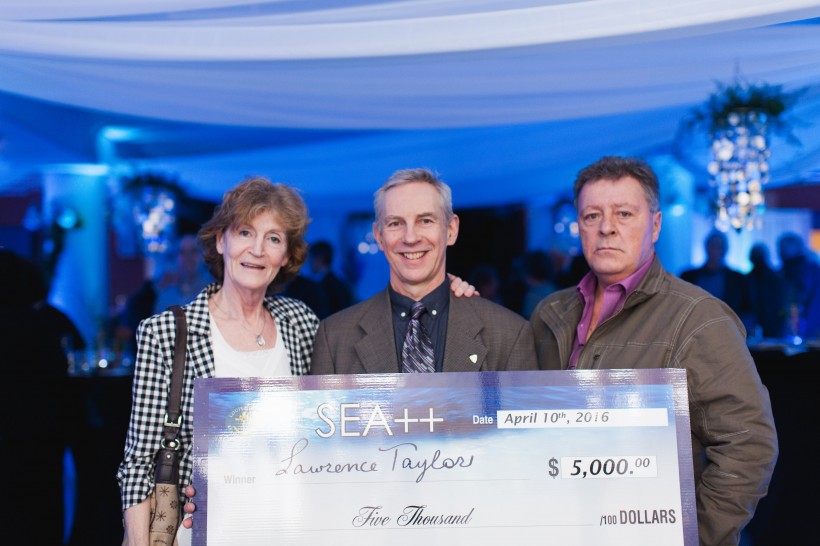Dartmouth marine biologist Lawrence Taylor won first place in the Sea++ Competition on Sunday for an automated visual inspection system that can improve efficiency and data analytics for seafood producers.
Sea++ was organized by Louisbourg Seafoods as means to bring in tech experts to help a traditional industry improve its productivity. The idea was that startups or researchers have ideas and understand technologies that can help established businesses compete better. It launched the competition in February with the goal of finding innovators who can solve seafood industry problems, and the winners were announced on Sunday in Sydney.
The Cape Breton seafood company offered a first prize of $5,000, which Taylor claimed for his work in using imaging technology in seafood plants to help generate and analyze data on various species of seafood. The system can help retailers and restaurants authenticate the origin of the fish, and tell producers important information about the fish they are harvesting. That information is especially important given the sparse funding available for research.
“A big element of it is just having your hands on the data,” said Taylor in an interview. “That’s a huge challenge because when they do have the money to do the research the sample size (of the fish being monitored) is always small.”
Ubique Lands $2M, Preps for Series A
Taylor’s company NovaSpectrum places imaging equipment in the seafood processing plants, and scans fish as they move along the conveyor belt. It can classify the size of the product. And using different frequencies of light, such as infrared, it can tell such qualities as fat content, which can reveal a lot about the fish’s feeding habits. NovaSpectrum will retain the intellectual property for the system.
Taylor said the technology can be used to efficiently gather data in experimental fisheries such as whelk or sea cucumber. Such data can be critical in gaining approval from the Department of Fisheries and Oceans in harvesting new species.
In the coming months, Taylor will assess the market for his technology and work on a minimum viable product. And he will continue to work with Louisbourg Seafoods. Manager Glen Fewer said in an interview the company has an optical sorter at its shrimp plant in North Sydney, and it could be used to test Taylor’s software.
Fewer said the company is looking forward to talking further with several of the entrants. These include Wendy Muise and Allyson White of Scotchtown Labs, who won the $2,000 second prize for a marketing strategy for the company. It also includes Susan Beaton, whose crate coolers to assist in shipping live lobster won the $1,000 third prize.
Fewer, a marine biologist and a judge in one of the early knockout rounds of Sea++, said the competition grew more intense in the final phase. He added that it allowed the company to connect with a range of innovative people whom it otherwise would have never met.
“It was something that we didn’t have a guide or a model for and we kind of made it up as we went along,” said Fewer. “But I can honestly say that the quality of the applicants was at such a high level that it exceeded expectations.”










